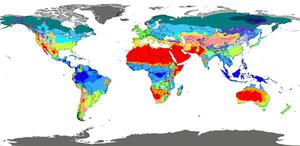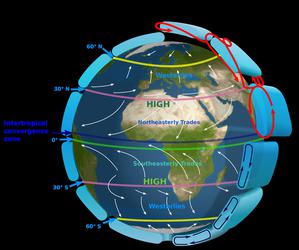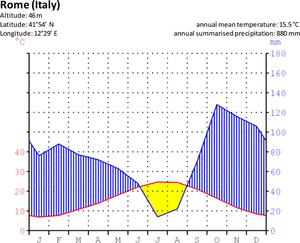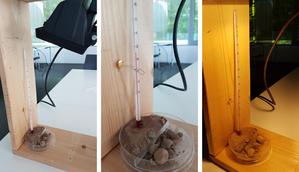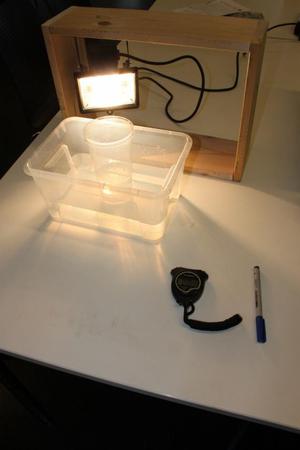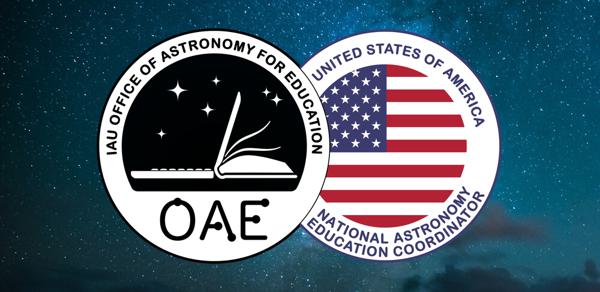Glossary term: Global Warming
Description: Global warming is a warming of a planet's atmosphere by greenhouse gases, such as water molecules, carbon dioxide, methane, etc. This is caused by an increase in the greenhouse effect where more infrared radiation is trapped by the atmosphere, thus increasing the global mean temperature of a planet. The sources of greenhouse gases can be natural or (on Earth) additionally caused by human industrial activity. Global warming on Earth will have significant very long-term effects on the planet, including short- and medium-term changes in local weather patterns, habitat destruction, and sea level rise.
Related Terms:
See this term in other languages
Term and definition status: This term and its definition have been approved by a research astronomer and a teacher
The OAE Multilingual Glossary is a project of the IAU Office of Astronomy for Education (OAE) in collaboration with the IAU Office of Astronomy Outreach (OAO). The terms and definitions were chosen, written and reviewed by a collective effort from the OAE, the OAE Centers and Nodes, the OAE National Astronomy Education Coordinators (NAECs) and other volunteers. You can find a full list of credits here. All glossary terms and their definitions are released under a Creative Commons CC BY-4.0 license and should be credited to "IAU OAE".
Related Activities
Continental Climate and Oceanic Climate
astroEDU educational activity (links to astroEDU website) Description: Find out why, in the summer it is cooler by the sea than on the land!License: CC-BY-4.0 Creative Commons Attribution 4.0 International (CC BY 4.0) icons
Tags: Climate change , Climate , Ocean Age Ranges: 6-8 , 8-10 Education Level: Primary Areas of Learning: Modelling , Social Research , Traditional Science Experiment Costs: Medium Cost Duration: 45 mins Group Size: Group Skills: Analysing and interpreting data , Asking questions , Constructing explanations , Engaging in argument from evidence , Planning and carrying out investigationsThe Intertropical Convergence Zone
astroEDU educational activity (links to astroEDU website) Description: The air circulation system: how are winds created?License: CC-BY-4.0 Creative Commons Attribution 4.0 International (CC BY 4.0) icons
Tags: Climate , Updraft , Convection , Winds Age Ranges: 12-14 , 14-16 Education Level: Middle School Areas of Learning: Discussion Groups , Modelling , Social Research Costs: Medium Cost Duration: 1 hour Group Size: Group Skills: Communicating information , Constructing explanations , Developing and using models , Engaging in argument from evidence , Planning and carrying out investigationsThe Climate in Numbers and Graphs
astroEDU educational activity (links to astroEDU website) Description: Learn about climate from data and graphsLicense: CC-BY-4.0 Creative Commons Attribution 4.0 International (CC BY 4.0) icons
Tags: Climate , Average , Climate zone , Weather Age Ranges: 14-16 , 16-19 Education Level: Secondary Areas of Learning: Social Research Costs: Low Cost Duration: 2 hours Group Size: Group Skills: Analysing and interpreting data , Asking questions , Communicating information , Constructing explanations , Developing and using models , Engaging in argument from evidence , Using mathematics and computational thinkingOceans As A Heat Reservoir
astroEDU educational activity (links to astroEDU website) Description: Why do oceans play an important role in mitigating global warming?License: CC-BY-4.0 Creative Commons Attribution 4.0 International (CC BY 4.0) icons
Tags: Life , Climate change , Oceans , heat Age Ranges: 12-14 , 14-16 , 16-19 Education Level: Middle School Areas of Learning: Modelling , Social Research , Traditional Science Experiment Costs: Medium Cost Duration: 1 hour 30 mins Group Size: Group Skills: Analysing and interpreting data , Constructing explanations , Developing and using models , Engaging in argument from evidence , Planning and carrying out investigationsThe Big Meltdown
astroEDU educational activity (links to astroEDU website) Description: Learn what would happen on Earth if all the ice melted!License: CC-BY-4.0 Creative Commons Attribution 4.0 International (CC BY 4.0) icons
Tags: Life , Climate change , Remote sensing , Oceans , Water , Antarctic , Arctic , Ice , Archimedes Age Ranges: 8-10 , 10-12 , 12-14 Education Level: Middle School , Primary , Secondary Areas of Learning: Discussion Groups , Modelling , Social Research , Traditional Science Experiment Costs: Medium Cost Duration: 45 mins Group Size: Group Skills: Analysing and interpreting data , Asking questions , Communicating information , Constructing explanations , Developing and using models , Engaging in argument from evidence , Planning and carrying out investigations